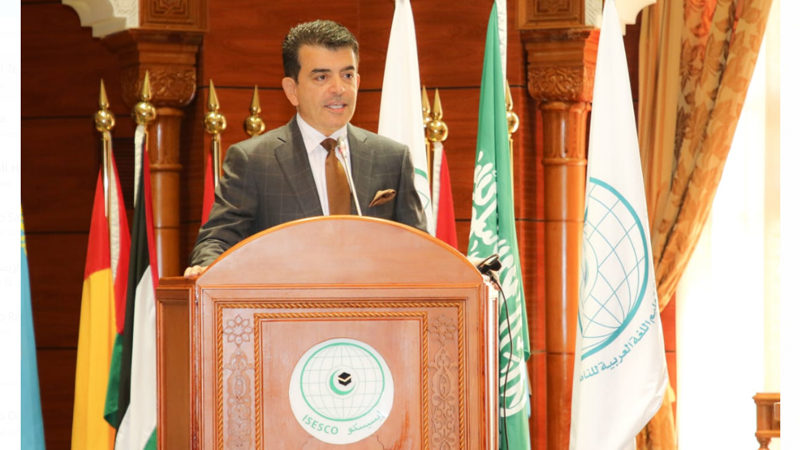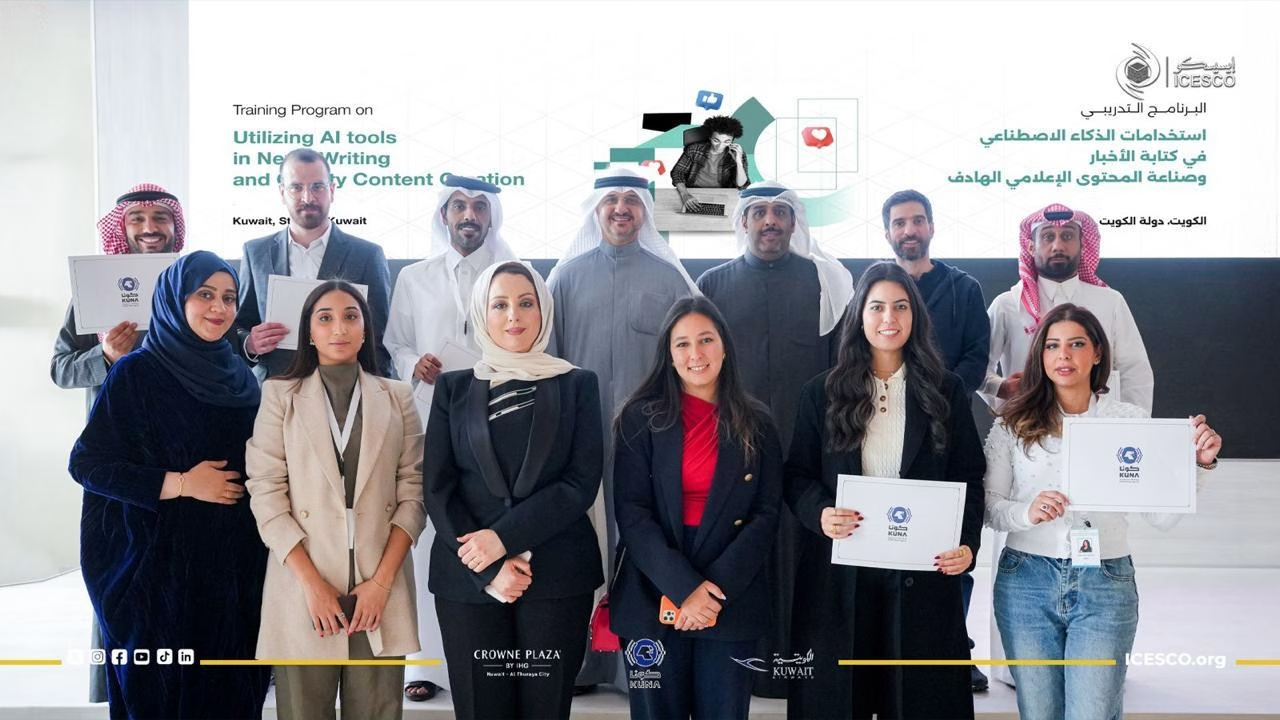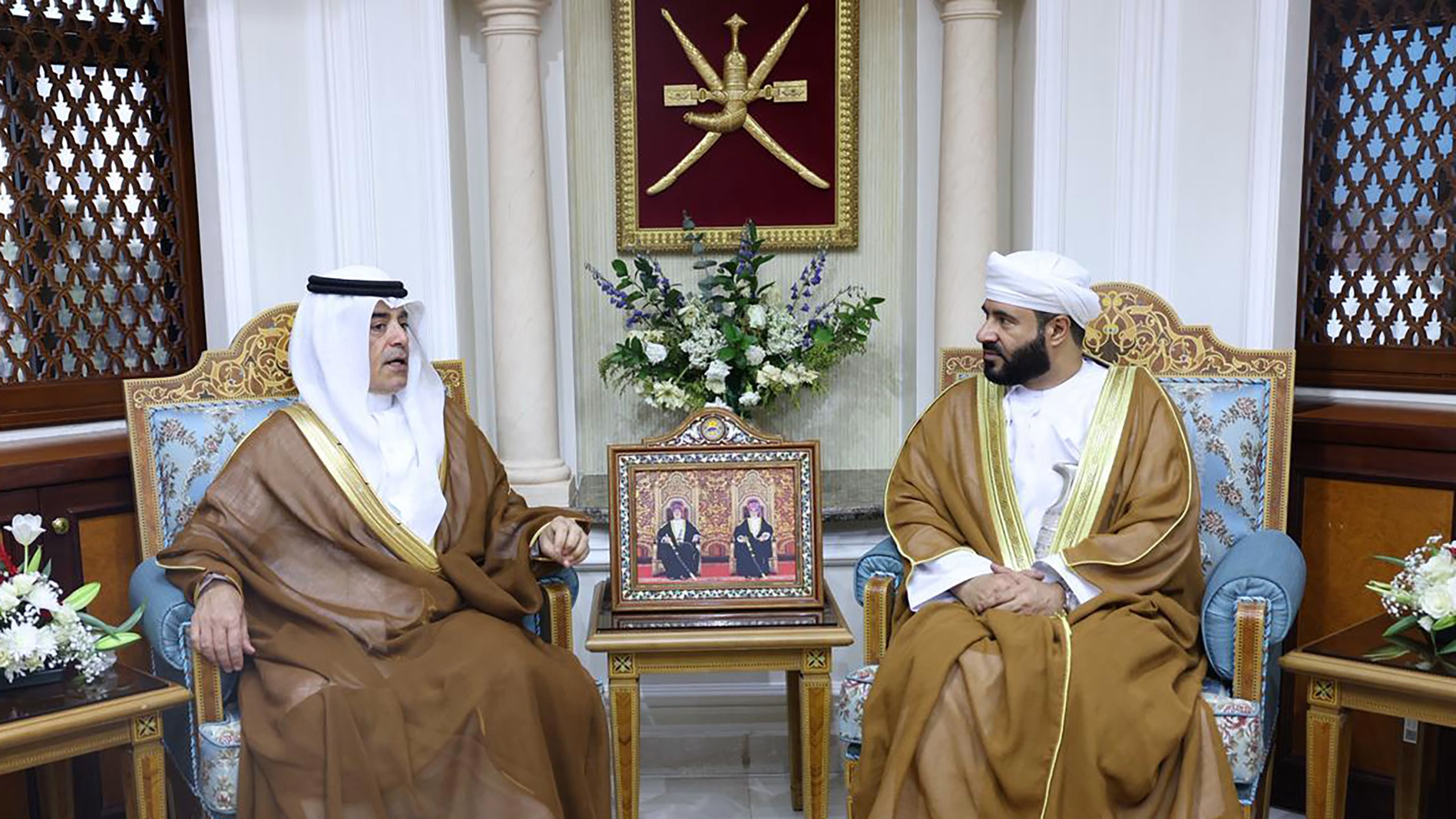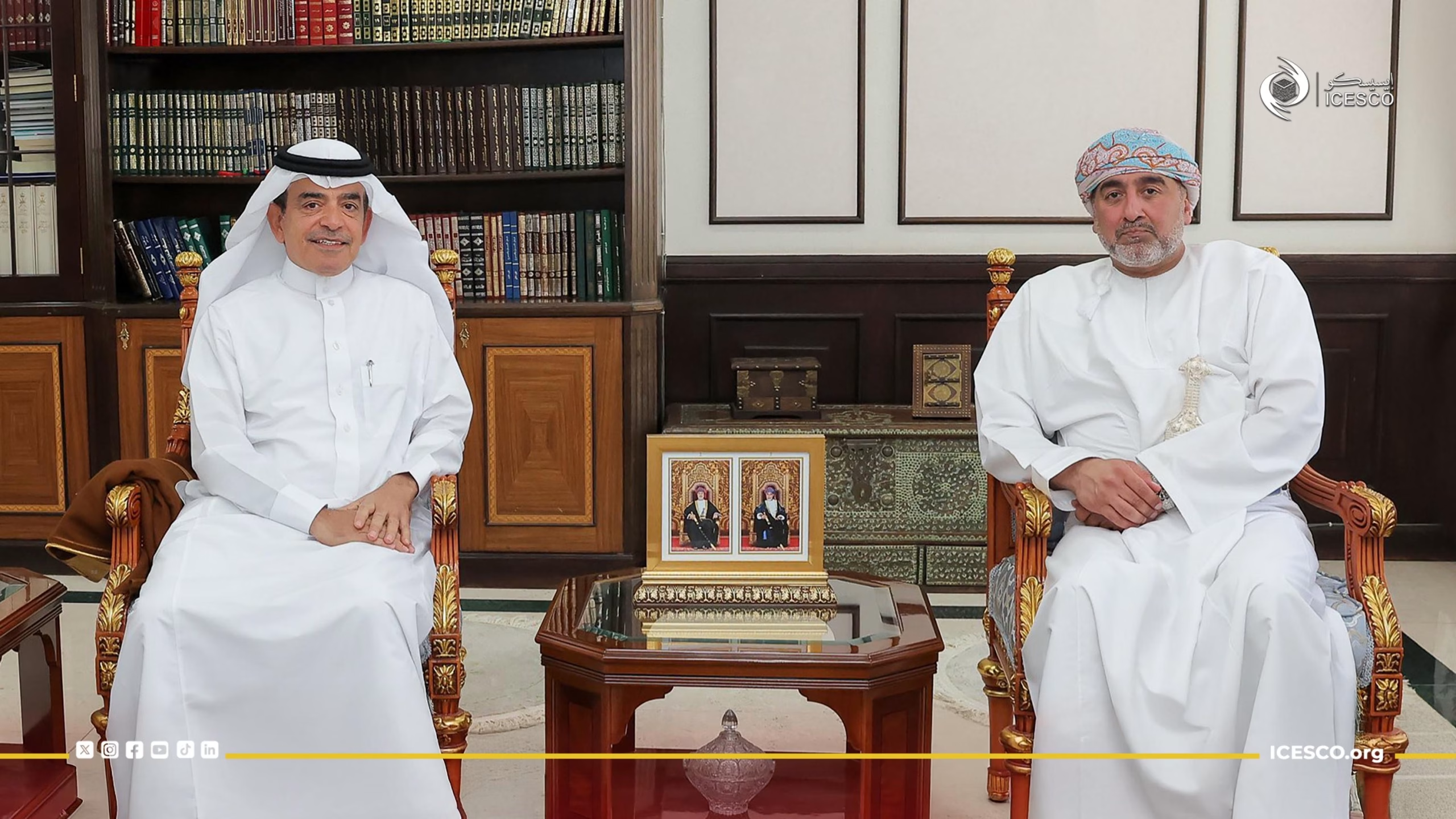
ISESCO Director General: Promoting Arabic is our shared responsibility, each from his/her position

27 December 2019
**The Organization works with the Islamic Development Bank (IsDB) and ALECSO to draft a reference framework for teaching Arabic
**It is crucial to benefit from information technology to facilitate teaching Arabic to non-Arabic speakers
The Director General of the Islamic Educational, Scientific and Cultural Organization (ISESCO), Dr. Salim M. AlMalik, reaffirmed that promoting Arabic in its educational, scientific, and media dimensions is a shared responsibility, which we must all shoulder, each from his/her position.
In his address at the opening of ISESCO’s celebration of World Arabic Language Day, which kicked off today at the Organization’s headquarters, under the theme: “Arabic and Artificial Intelligence”, Dr. AlMalik stated that, as part of its new vision, ISESCO directs attention toward renewing the curricula, methods and tools of teaching Arabic to non-Arabic speakers. This attention stems from the Organization’s conviction in the need to benefit from the tremendous opportunities ICT provides with regard to facilitating teaching and learning Arabic in different cultural environments.
In addition, the Director General revealed that ISESCO is currently working with the Islamic Development Bank (IsDB) and the Arab League Educational, Cultural and Scientific Organization (ALECSO) to lay the methodological foundations and draft a comprehensive plan for devising a joint reference framework for teaching and learning Arabic, which is hoped to be completed in the upcoming two years. This major civilizational initiative is expected to fill in a methodological gap in the Arabic teaching programmes, and assess the competencies of its learners.
Dr. AlMalik also wondered if the Islamic world sufficiently exerted efforts to allow Arabic to keep up with the rapidly-changing changes, stressing that the Islamic world is before a situation that requires taking cognizance and drawing lessons: despite its distinctive aspects among major world languages, Arabic lost the head start and leadership in disseminating sciences, knowledge and innovations.
Likewise, he warned that the digital content written in Arabic in different fields does not exceed 3% of the total world contents on the Internet. He added that proactive studies addressing the repercussions of the digital revolution and the Internet of things state that the patterns of formal, teacher-based schools will witness drastic and rapid change in the next two decades, moving towards an educational system based on digital software and applications, a change already taking shape in advanced countries through digital classrooms and the system of smart and open schools.
The Director General concluded his address with a poem he wrote on Arabic language in the hope for a brighter future for it.





